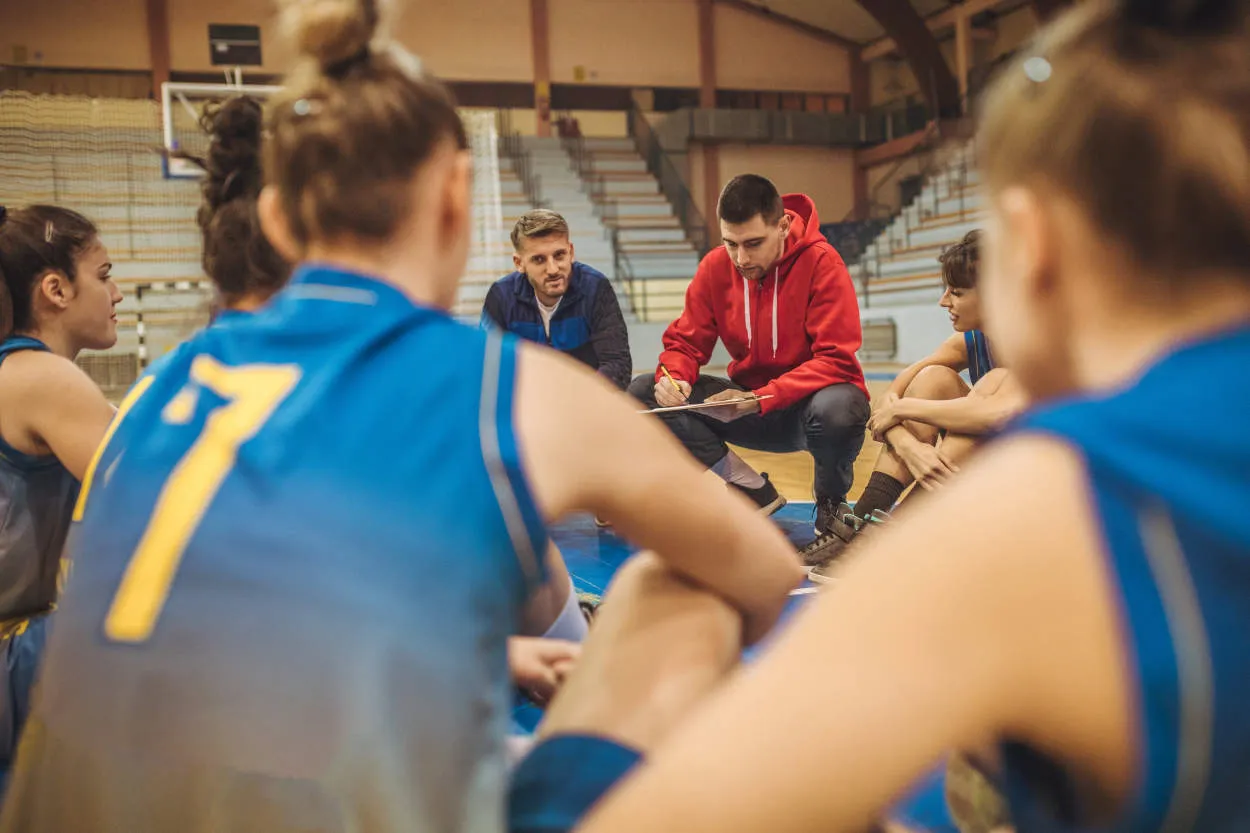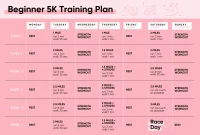Are you ready to unlock the secrets to athletic success? In this article, we will reveal insider tips and strategies that will take your performance to the next level. Whether you’re a professional athlete or a fitness enthusiast, these valuable insights will help you achieve your athletic goals. Get ready to elevate your game and reach new heights of athletic excellence!
Learning from Professional Athletes’ Routines
Professional athletes are known for their exceptional performance and consistent success. Behind their achievements lies a set of routines and habits that contribute to their athletic prowess. By observing and learning from their routines, aspiring athletes can gain insight into the secrets of athletic success.
One key aspect of professional athletes’ routines is discipline. They follow a strict schedule that includes regular training sessions, proper nutrition, and ample rest. This ensures that their bodies are well-prepared for the intense physical demands of their sport.
Another crucial element is goal setting. Professional athletes set specific, measurable, and attainable goals for themselves. These goals help them stay focused and motivated, pushing them to constantly improve. By emulating this practice, aspiring athletes can establish a clear path to success.
Professional athletes also prioritize mental strength. They engage in activities such as meditation, visualization, and positive self-talk to stay mentally sharp and maintain a winning mindset. Developing these mental techniques can make a significant difference in an athlete’s performance.
Furthermore, professional athletes understand the importance of constant learning and adaptation. They study their opponents, analyze their own performance, and seek guidance from coaches and experts. This continuous learning process enables them to identify weaknesses and make necessary adjustments to stay ahead of the competition.
Lastly, professional athletes surround themselves with a strong support system. They have coaches, trainers, and teammates who provide guidance, motivation, and constructive feedback. Building a similar support network can greatly enhance an athlete’s journey towards success.
In conclusion, learning from professional athletes’ routines can be invaluable for aspiring athletes. By incorporating discipline, goal setting, mental strength, continuous learning, and a strong support system into their own routines, individuals can pave the way for athletic success. Embracing these secrets to success will undoubtedly bring individuals closer to achieving their athletic goals.
Advanced Techniques in Specific Sports
When it comes to excelling in sports, athletes often seek out advanced techniques to gain a competitive edge. Regardless of the specific sport, there are insider tips and strategies that can lead to athletic success. Let’s explore some of these secrets below:
1. Perfecting the Fundamentals
Mastering the basics is crucial in any sport. Even the most advanced techniques can only be successful if the fundamental skills are well-honed. Athletes should dedicate time to perfecting their technique, whether it’s shooting in basketball, tackling in football, or swinging a golf club.
2. Mental Preparation
Athletic success is not solely dependent on physical abilities; mental preparation plays a significant role as well. Athletes should focus on building a strong mindset, developing mental toughness, and visualizing success. This approach helps them stay focused, overcome challenges, and perform at their best when it matters most.
3. Utilizing Advanced Training Methods
Training methods have evolved significantly over the years. Athletes now have access to advanced techniques such as interval training, plyometrics, and sports-specific drills. Incorporating these cutting-edge methods into their training routines can enhance performance and give them an edge over their competitors.
4. Analyzing and Learning from Competitors
Studying and analyzing the techniques of successful athletes in the same sport can provide invaluable insights. By observing their competitors, athletes can identify new strategies, improve their own skills, and find ways to exploit weaknesses in opponents.
5. Seeking Expert Guidance
Coaches and trainers who specialize in specific sports have profound knowledge and experience. Seeking their guidance can greatly benefit athletes looking to take their performance to the next level. Expert coaches can fine-tune techniques, offer personalized training plans, and provide valuable advice on tactics and strategies.
6. Pushing Physical and Mental Boundaries
Athletes who are willing to push their physical limits and step out of their comfort zones often see significant improvements. This includes challenging oneself in training, embracing new techniques, and adopting a growth mindset. By constantly striving to improve, athletes can unlock their full potential.
The Importance of Sports Psychology
Sports psychology plays a crucial role in achieving athletic success. It involves understanding and harnessing the power of the mind to enhance performance, overcome challenges, and maintain mental resilience. Here are some key reasons why sports psychology is vital for athletes:
- Enhancing performance: Sports psychology techniques help athletes improve their focus, concentration, and self-confidence. By developing mental skills such as visualization, goal-setting, and positive self-talk, athletes can optimize their performance and reach their full potential.
- Managing pressure and stress: Competing in sports can be highly stressful, and athletes often face enormous pressure to perform under different circumstances. Sports psychology equips athletes with strategies to regulate stress, control anxiety, and handle high-pressure situations effectively.
- Developing resilience: Sports psychology teaches athletes to bounce back from setbacks and failures. It fosters mental toughness, adaptability, and a growth mindset, enabling athletes to stay motivated and perseverant even in the face of adversity.
- Building teamwork and communication: Effective communication and teamwork are vital in sports. Sports psychology helps athletes improve their communication skills, resolve conflicts, and enhance team cohesion, leading to better collaboration and success.
- Optimizing motivation and goal-setting: Sports psychology helps athletes set clear, attainable goals and develop strategies to stay motivated throughout their athletic journey. It enables them to maintain focus, overcome obstacles, and strive for continuous improvement.
In conclusion, sports psychology plays a pivotal role in maximizing an athlete’s performance and overall success. By understanding and leveraging the power of the mind, athletes can navigate the challenges of their sport with confidence, determination, and mental resilience.
Cross-Training for Enhanced Performance
Cross-training is a powerful strategy that athletes can utilize to elevate their performance to new levels. By incorporating various exercises and training activities into their routine, athletes can enhance their overall fitness, improve skills, prevent injuries, and boost endurance.
One of the key benefits of cross-training is its ability to target different muscle groups. This approach helps to develop a balanced physique and reduce the risk of overuse injuries. For example, a long-distance runner can incorporate strength training exercises to strengthen the muscles that support running while also engaging in low-impact activities such as swimming or cycling for active recovery.
Additionally, cross-training enhances skill development by introducing athletes to different movements and challenges. For instance, a basketball player can incorporate yoga or Pilates to improve flexibility, balance, and coordination, which are essential skills on the court.
Another advantage of cross-training is its positive impact on endurance. Engaging in activities like cycling or swimming helps to build cardiovascular fitness without overtaxing the body. This improved endurance can translate into better performance in specific sports or activities.
Lastly, cross-training can add variety and reduce boredom in a training regimen. By mixing up workouts, athletes can stay motivated and engaged while avoiding the monotony that can come with repetitive training routines.
In conclusion, cross-training is a valuable tool for athletes seeking to optimize their performance. Through targeting different muscle groups, enhancing skill development, improving endurance, and introducing variety, athletes can achieve enhanced performance and reach new levels of success.
When it comes to achieving athletic success, understanding the intricacies of competitive sports becomes crucial. Whether you are a beginner or an experienced athlete, mastering the secrets to excelling in your chosen sport can give you a competitive edge. In this article, we will explore insider tips and strategies that can help you on your journey to athletic greatness.
1. Set Clear Goals
One of the first steps towards athletic success is setting clear and realistic goals. By defining what you want to achieve, you can tailor your training and focus on the specific areas that need improvement.
2. Develop a Consistent Training Routine
Consistency is key in any athletic pursuit. Creating a structured training routine and sticking to it will not only improve your physical abilities but also build discipline and mental resilience.
3. Seek Professional Guidance
Coaches and trainers are an invaluable resource in competitive sports. They possess the knowledge and experience to guide you through proper technique, nutrition, injury prevention, and overall performance optimization. Seek out reputable professionals in your sport and learn from their expertise.
4. Maintain a Balanced Lifestyle
Achieving athletic success is not just about training relentlessly; it also involves maintaining a balanced lifestyle. Proper rest, nutrition, and recovery are essential for optimal performance. Make sure to prioritize adequate sleep, a nutritious diet, and sufficient time for relaxation.
5. Embrace Failure and Learn from Setbacks
In the world of competitive sports, setbacks and failures are inevitable. Instead of letting them discourage you, use them as opportunities for growth. Learn from your mistakes, analyze what went wrong, and adjust your approach accordingly. Remember, resilience is key to long-term success.
6. Surround Yourself with a Supportive Network
Having a strong support system can make a significant difference in your athletic journey. Surround yourself with individuals who believe in your goals and provide the necessary encouragement and motivation. They will be there to celebrate your successes and help you overcome challenges along the way.
In conclusion, mastering the world of competitive sports requires dedication, perseverance, and a clear roadmap to success. By setting goals, maintaining consistency, seeking professional guidance, maintaining a balanced lifestyle, embracing failure, and cultivating a supportive network, you can enhance your chances of reaching new heights in your athletic endeavors. Remember, success does not come overnight, but with the right mindset and strategic approach, you can unlock your full athletic potential.
Conclusion
In conclusion, the secrets to athletic success include a combination of dedication, discipline, proper training, and mental fortitude. Athletes who are committed to their goals, maintain a stringent training regimen, and cultivate a positive mindset are more likely to achieve greatness in their respective sports.




